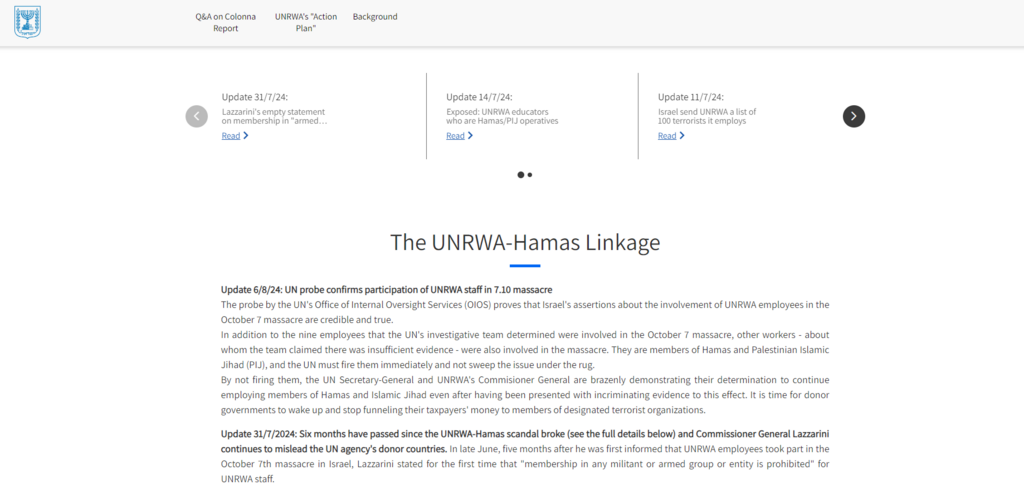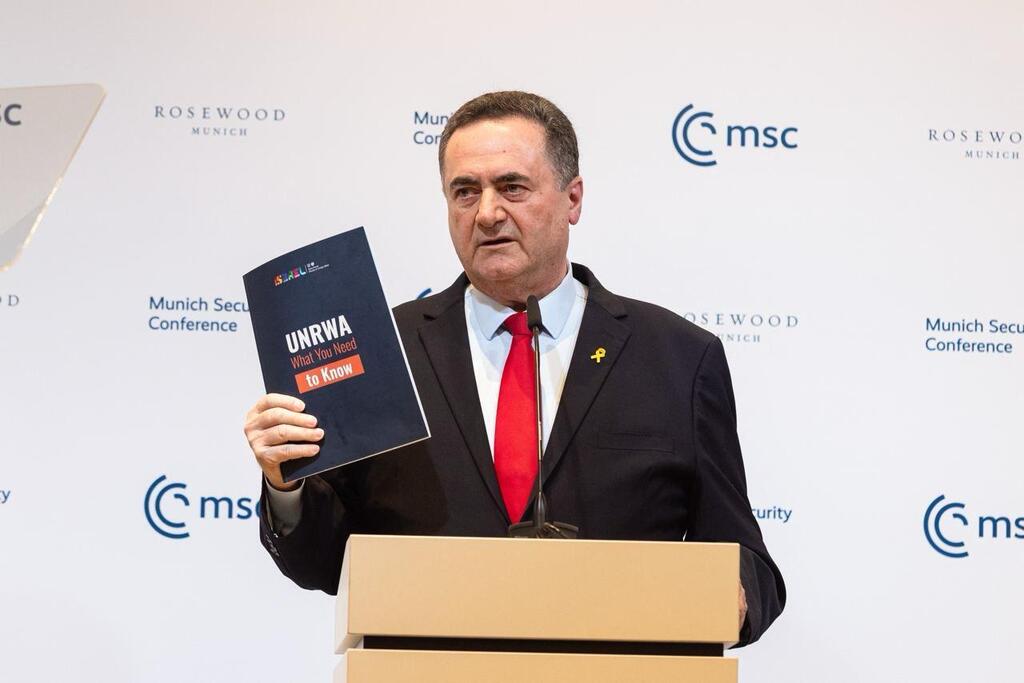Getting your Trinity Audio player ready...
Internet users in the United States and Europe, seeking information about UNRWA on Google, have recently found themselves redirected to an unexpected destination. Instead of being ushered to the official website of the international agency dedicated to Palestinian refugees or its Wikipedia entry, thousands were led to an Israeli site telling a different story – depicting UNRWA as a facade for Hamas activities in Gaza.
For several months now, Israel has embarked on a sweeping digital campaign designed to erode trust in UNRWA among American and European audiences. These ads, prominently displayed at the top of Google search results, are purchased directly from the American tech giant through government advertising channels, steering users to a government-run site that casts UNRWA as a Hamas collaborator.
Launched around January, this campaign has led many to discover that the top search results for over 300 terms related to "UNRWA" and "UNRWA USA" do not lead to the organization’s official websites but rather to critical sites managed by the Israeli government.
A controversial campaign
The content on the government site leaves no room for ambiguity: "UNRWA in Gaza is beyond redemption. Donor countries still funding UNRWA are indirectly funding Hamas, plain and simple," declares one English-language article, alongside other assertions that challenge the organization's neutrality and implicate its employees in the October 7 massacre. Alongside search ads, Israel also purchased video ads in the U.S. with messages claiming "UNRWA is inseparable from Hamas" and "continues to employ terrorists."
The campaign has sparked significant criticism, with many users and Google employees expressing discomfort over what they describe as a "cunning campaign to dismantle UNRWA amid a period when civilian lives in Gaza are under siege." They have called on company management to remove the campaign, arguing it violates Google’s ad policies – from prohibited political interference to trademark infringement.
While Google, accustomed to complaints from business competitors, has dismissed most claims, this does not necessarily indicate inaction. Last October, the company removed about 30 Israeli ads featuring violent imagery following an investigation by Politico. Simultaneously, Google faced criticism for allowing the display of Israeli ads with graphic content in children’s gaming apps.
A battle for public perception
Israel's move is part of a broader, heavily funded digital campaign aimed at persuading the American public and global governments to cease their support for UNRWA, arguing that the organization supports terrorist activities. For Israel, this is not just a battle for public perception but also for redirecting governmental and international funding that sustains UNRWA's operations.
As Israel ramps up its campaign efforts, UNRWA and its American branch, UNRWA USA, which raises funds for aid activities in Gaza, are countering the challenge by intensifying fundraising drives – resulting in a significant increase in their revenues.
According to UNRWA USA's Jewish CEO, Mara Kronfeld, the organization raised over $32 million from about 73,000 donors in 2023, compared to approximately $5 million from nearly 5,700 donors the previous year. Kronfeld, who joined the organization in 2020, was inspired by her grandfather's escape from Nazi Germany and his lesson that "no one should ever be mistreated based on where they were born."
A digital war of attrition
One of Kronfeld's initiatives upon taking office was to boost the organization’s online advertising. She recently acknowledged that competing for search ads against the Israeli government has heightened the challenge for UNRWA and its affiliates in spreading their messages, leading them to spend tens of thousands of dollars in efforts to remain at the top of Google search results. There is already one clear winner in this saga.
This digital war of attrition raises questions about Google's policies and the limits of its responsibility as the operator of a global commercial platform. While Google claims to adhere to policies prohibiting the dissemination of false information, Israel uses ads that the organization views as "deliberate lies."
UNRWA describes the Israeli strategy as a destructive political campaign aimed at undermining American public trust in the organization and its support. These claims echo the concerns of some Google employees, who worry that the company is profiting from disseminating "controversial" messages. Some have even filed formal complaints with management on the matter.
Ultimately, this digital advocacy battle is much more than a mere competition for Google search results; it is part of a global campaign where every click can change opinions and influence international support. In a world where every piece of information vies for users’ attention, the big question is how this battle for public opinion will be managed in the digital age – and whether, at the end of the day, every click and ad line will not only lead to finding information but also shape a new reality.






